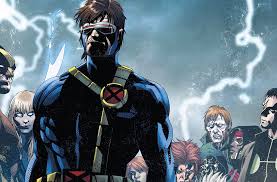Marvel and Jonathan Hickman Reveal Plans for ‘Whole New Era’ of X-Men
This summer, everything will change for the X-Men when Jonathan Hickman makes his return to Marvel Comics. Hickman’s Marvel work includes acclaimed runs on Fantastic Four and Avengers. That work built to its multiverse-shattering climax in Marvel’s 2015 event series Secret Wars.
https://youtu.be/LMXUsneZMKM
In July, Hickman returns with his sights set on Marvel’s mutants. Marvel has teased Hickman’s X-Men as the biggest milestone for the franchise since Grant Morrison release of New X-Men in the early 2000s. It begins with House of X and Powers of X, two six-issue miniseries. Based on the interview with Jonathan Hickman, these miniseries set up a bold new era that will redefine the X-Men for years to come.
Interview with Jonathan Hickman
Jonathan Hickman also told us about how he did returned to Marvel, what fans can expect from these two new miniseries, and teased big plans for what will come next. Marvel also provided ComicBook.com with new looks at House of X and Power of X, as well as the covers to the second and third issues of each series.
Watch More :
Also Read: How Will Zac Efron Look Like As Adam Warlock For ‘Guardians of the Galaxy Vol. 3’?
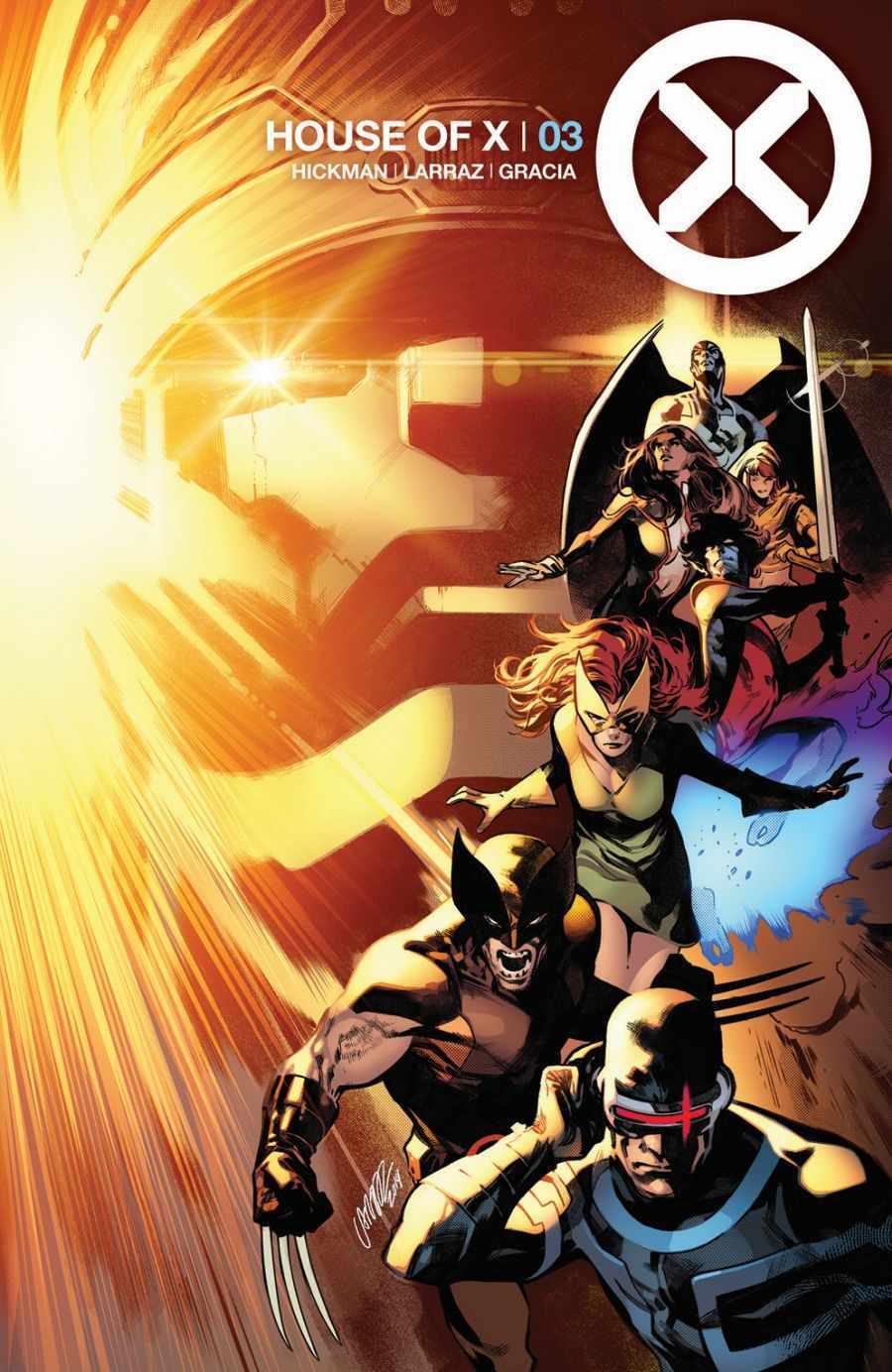
So, you’re back at Marvel? How’d that happen?
Jonathan Hickman: Well, I was sitting in an LA hotel room a year-and-a-half ago and I got a call from Dan Buckley asking me to consider holding on some other projects until he had a chance to make me an offer. I, of course, said ‘of course’ as both he and Marvel have been good to me over the years.
So, we got on the phone and talked about a lot of things: What I’d like to do if I came back, what he’d like for me to do, and some vertically-integrated opportunities at the company that were not available when I was there last.
And then, he basically told me that my mandate, if I came back, would be to just ‘try things.’ Which on top of everything he’d already said made it a pretty attractive proposition.
Obviously, I accepted.
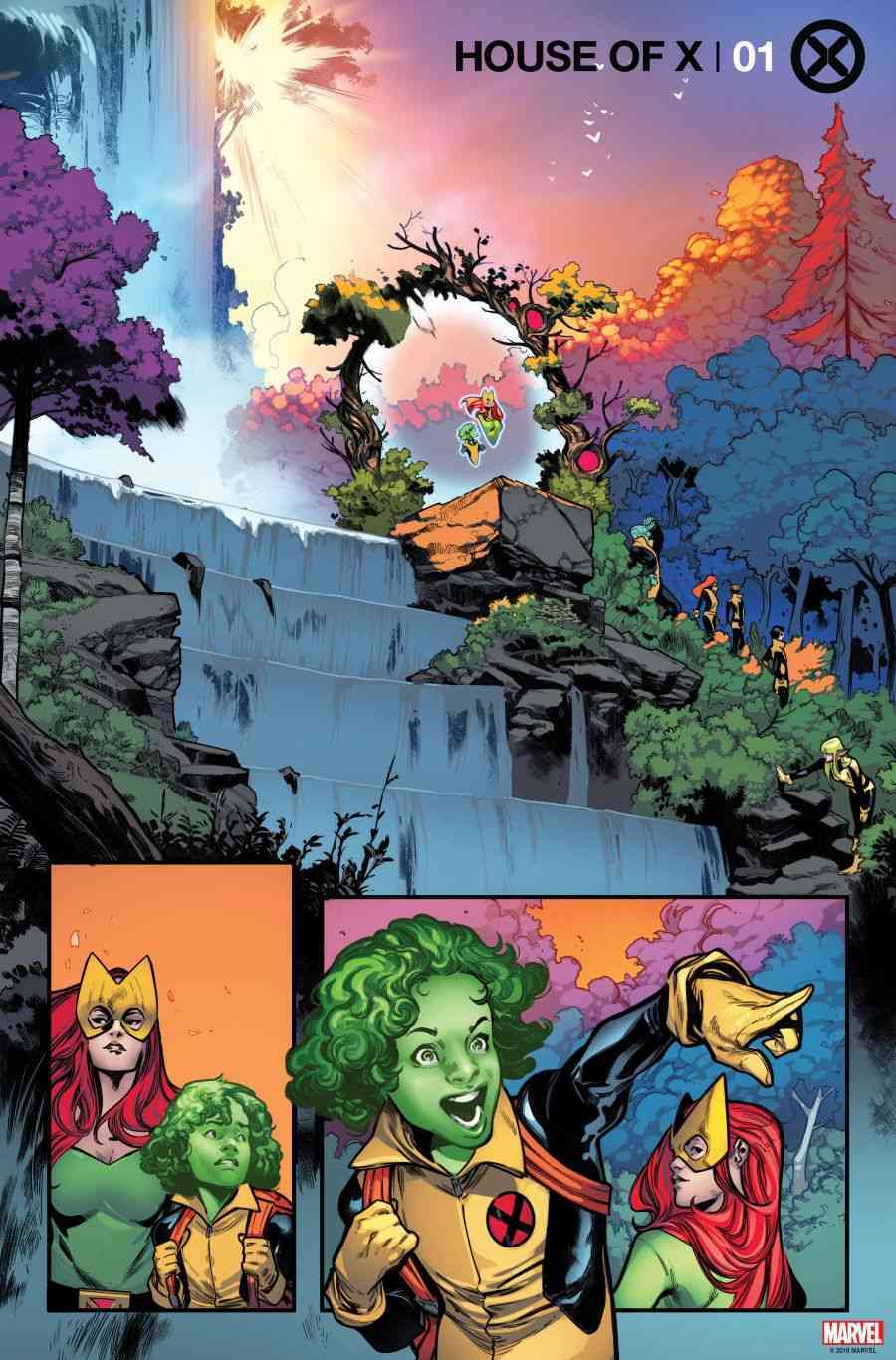
And this led to X-Men?
JH: Yeah. I mean, I threw out quite a few ideas I had for other books, but X-Men was the bigger, more timely, idea. It was certainly the one I was most excited about.
So, I thought about what I wanted to do, and more importantly, what I thought the line needed, and then I flew up to the Marvel offices and pitched all of the senior editorial what I had in mind. We met for a while, fought a little bit, then I went back home and polished everything up, and then, about a year ago, I presented the entirety of it at a Marvel retreat. Which went well.
We have been working hard on it ever since then.
Did you always want to introduce this next era for the X-Men with House of X and Powers of X? How did this idea start for you?
JH: Okay, so, for the most part, I don’t believe incrementalism works in fictional universes, and that, I think, is why almost every big franchise change that occurs has a delineated starting point. I mean, it does work, which is why the industry often abuses it as a sales tactic.
And in the spirit of ‘what works’ and also ‘what the market is used to’, I didn’t feel like just doing a new number one was enough. I also didn’t think that if we were serious about what we were trying to do we should have a mixed message in the market about what an X-book is.
So I argued for cancelling the entire line: Why it would work, why it was a good idea, and most importantly, why it was what we needed to do narratively to return the X-Men to their rightful prominent position in the Marvel Universe.
We needed to sell the idea that this is what we’re going to be doing for the next few years. So if you want to read X-Men books during the run from late-July through September, House of X and Powers of X are the only new X-books available and everything that’s going to follow is based on them. We wanted to be clear to the fans, to the stores, and just as importantly, to the creators who are going to be staffing these books in the future. We wanted the message to be very clear: This is a whole new era for the X-Men. This is what we’re doing now.
And so, POX and HOX are how we’re starting. It’s a solid plan, I think.
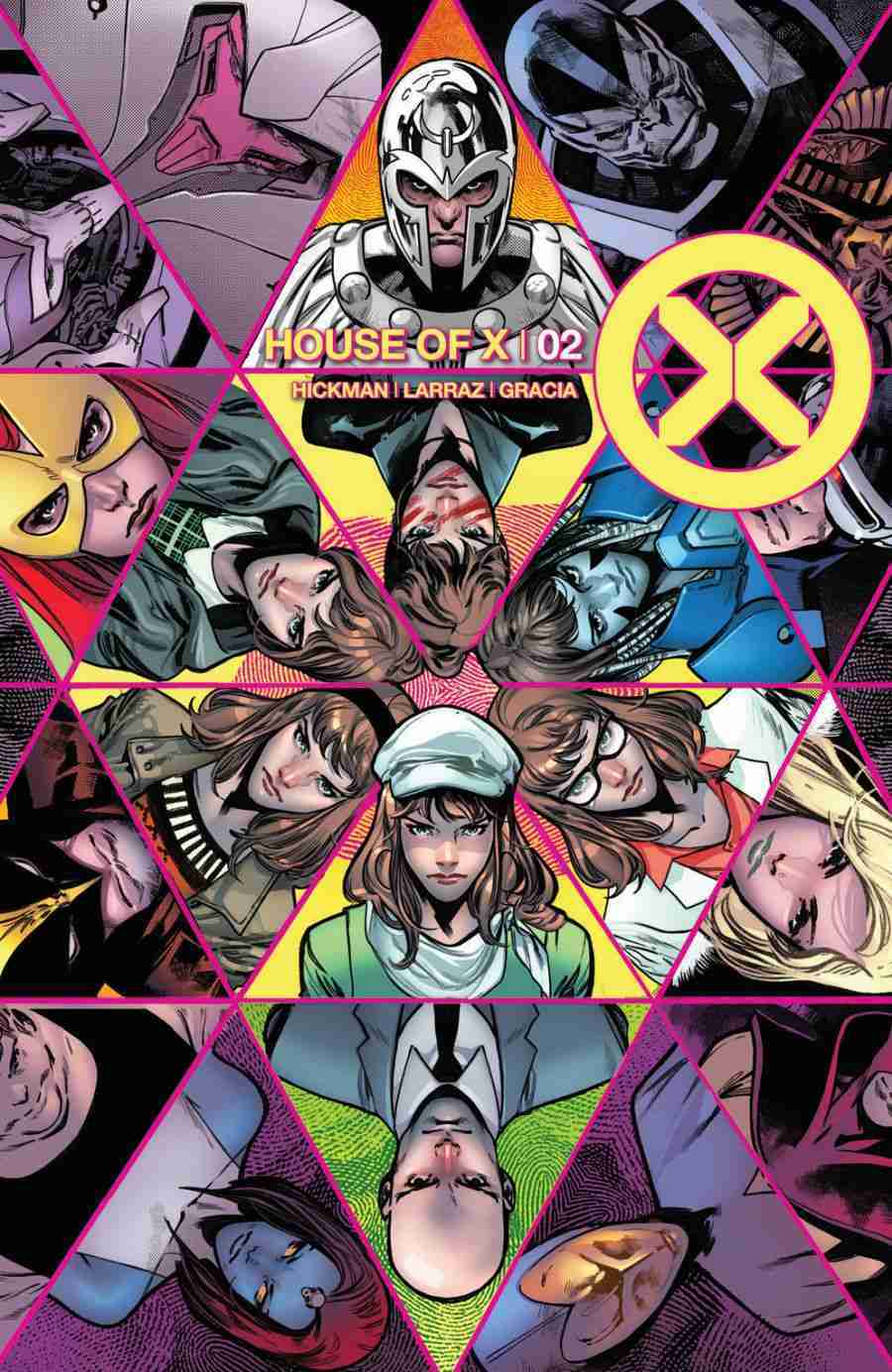
You’ve said that fans will need to pick up both House of X and Powers of X to get the full story. Can you go into any more detail on how they relate? Why two six-issue series instead of one 12-issue series?
Well, there’s a practical element to all this, which is we only wanted one artist on each series. And based on the timeline, that wouldn’t be possible with a higher issue count because we only had, roughly, a nine-month production window. So in my head, one single narrative was never an option.
But honestly, that really never was a concern because, in the same manner as when I was working on FF/F4 and Avengers/New Avengers, the format is basically two stories about one story.
One, House of X, is a story about a pivotal month in the history of the X-men where everything changes for mutants on Earth. And the other, Powers of X, is a story about the history of mutants in the Marvel Universe. It works as a series of reveals and revelations where each issue of HOX that follows POX — and vice versa — makes you reinterpret the issue you had previously read.
And then, obviously, at the end they crash together in a way that propels us forward into a new X-Universe.
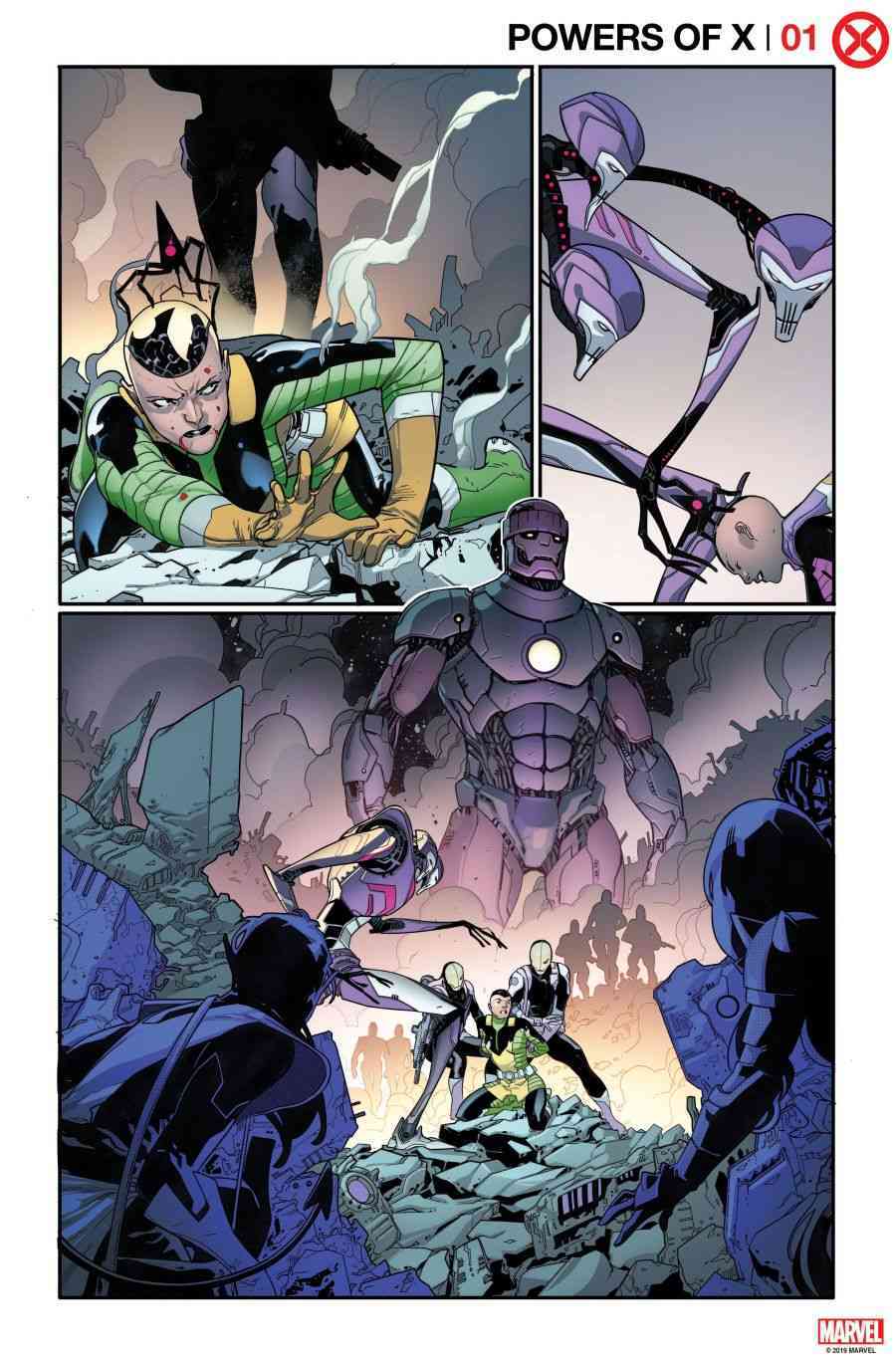
What should fans expect from these two series?
JH: Big X-Men things. Some cool new ideas. A lot of your favorite mutants. Definitely some killer art, as Pepe and R.B. are doing an incredible job.
How prominent is the mutant metaphor in your take on the X-Men? Is that something you’re leaning into, or are you leaning more towards to sci-fi elements of the X-Men’s mythology?
JH: If by ‘sci-fi elements’ you mean some basic evolutionary biology, a little genetic homogeny, a lot of contact linguistics or, you know, how mutants bend the Kardashev scale, then sure. We’ll be doing all that stuff.
As to the other, I’m not sure how you get away from doing metaphor when you’re writing X-books. I suppose that, narratively, the problem nowadays is interpretation. Are we talking about a stand-in for marginalized groups, or the metaphor simply being a substitution of the word ‘different’ for ‘special’, or is the real modern complication atomization? Where everything is segmented to such a degree that there are no stories which mean something to everyone. Where the psychological expectation is something catered, or personalized.
I suspect that last bit also has a lot to do with why we’ve been in a nostalgic feedback loop for quite a while. Where everyone is telling X-Men stories about other X-Men stories.
With all that in mind, I think I have a pretty good idea of how to move all of this forward. Hopefully I’ll get it right.
While we know you can’t share too much, can you share any details around this new direction of what’s happening in the X-Universe? Are there plans after House of X and Powers of X?
JH: At the conclusion of our 12 weeks of HOX and POX, we’ll be launching an entire new universe of X-books. Some will be traditional fare, some carry through on ideas presented in HOX and POX. Some books are completely new concepts. I, personally, will be writing the ongoing flagship X-book.
Now, we’re already in production on all of these ‘Wave 1’ books and our plan at this moment is to introduce the titles, creative teams, and publishing details around SDCC, which is a week before HOX #1 goes on sale.
We also just finished our plans for our ‘Wave 2’ books that will debut in 2020 and we’re getting ready to hire talent for those.
It’s pretty exciting, and this kind of long-term planning is one of the benefits of knowing what direction you’re headed for the next few years.
Throughout their history, the X-Men have been depicted varying as a superhero team, a family, a school faculty, outlaws, and mutant law enforcement. How do you describe your version of the X-Men?
JH: Oh, I think the X-Men is about finding the family that you never knew you had. One that accepts you for who you are, who loves you at your best and worst, and who shares your dreams for what the world can be.

